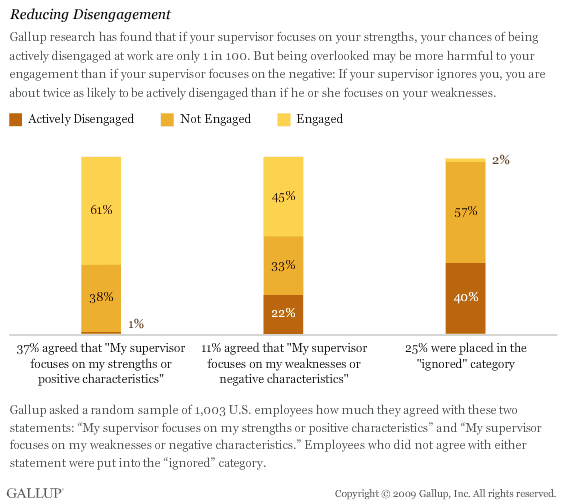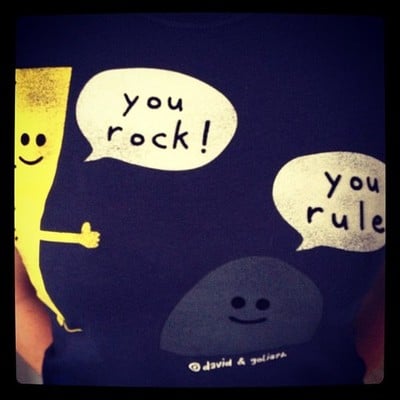Judging Creates Massive Energy Leaks
Summary Insight:
Judging others wastes energy. Quietly spotting and appreciating strengths helps to build trust, alignment, and results. It’s a leadership multiplier.
Key Takeaways:
- “Shoulding” others creates resistance and saps team energy.
- Quiet appreciation unlocks flow, trust, and performance.
- Strengths-based teams outperform — and feel better doing it.
There are few things that will bring as much power and benefit to your personal and professional life as the practice of quietly appreciating the strengths of others.
To drive this point home, I’d like you to recall a time in your past when you weren’t accepted for who you are. Maybe this was within your family of origin, in a work setting, at school, or even on a sports team. C’mon, I know you have at least one period in your life like this. When was it?
From your vantage point today, wasn’t that experience exhausting? Didn’t you spend more time and energy worrying if you’d ever fit in than you did on working towards your goal? Didn’t that period in your life pretty much suck?
You’re not alone. A recent Gallup Research poll shows that employees who feel accepted by their managers and peers feel highly engaged in their jobs while those who get negative feedback (or even worse — are ignored all together) are actively disengaged:

It doesn’t take a genius to realize that higher engagement leads to higher productivity, creativity, and job performance. When we don’t feel accepted for who we are and we don’t have the opportunity to play to our strengths, it costs us a tremendous amount of energy and saps our productivity and morale.
By the way, I think this experience is pretty common for entrepreneurs. Many of us felt like we didn’t fit into the existing structures and so we create our own. But that’s for another story.
Now I’d like you to imagine something different. You’re a fly on the wall at ACME Corp. ACME is an average-performing company with an average culture.
From your vantage point on the wall, you observe that, while everyone is professional and polite on the surface, they seem more focused on what’s happening within the company itself than in how to kick ass in the marketplace.
Specifically, you notice an undercurrent of subtle “shoulds” that the colleagues at ACME hold towards each other. True, nothing really damaging is said outright. It’s usually couched in language like this:
- “Sure, Sam is a visionary but he can’t manage his way out of a paper bag. He should be more detail-focused and a little less erratic.”
- “Sarah is a great programmer but she’s moody as hell and only works on what she wants to work on. She should be more of a team player.”
- “Yes, Mark is a good project manager but he’s not really in tune with where the market is headed. What we really need is break-out thinking.”
- “Linda is smart as a whip but she’s a bulldozer. I wish she were more aware of how she impacts those around her.”
Can you spot the “shoulds” in this dialogue? This occurs anytime we want or expect someone to be different than they are. Obviously, this mindset is NOT unique to companies like our fictional ACME.
When was the last time you heard yourself say something like the above about someone you work with, either silently to yourself or in conversation with others? I bet it was pretty recent. I do it. We all do it. In fact, we’ve been so conditioned to find and focus on others’ weaknesses or what they don’t do well enough that it’s hard to even see anything wrong with it.
So what is wrong with it exactly? It’s that wanting others to be different than they are is a colossal waste of energy. We all know that people are who they are! No amount of wishing or complaining is going to change that fact. The only thing that can change another person is that person.
If we wish, prod, cajole, expect, demand, incentivize, or “should” another person into being different than they are, this just creates resistance. We all crave acceptance – and acceptance lowers resistance. When we feel accepted, we feel empowered to focus on our goals, to develop and evolve, and to contribute the maximum to the shared cause. Not because we have to, but because we want to.
Have you ever been in a partnership or on a team without “shoulds”? Where each member recognizes and accepts the others strengths and each plays to their respective strengths? It’s pretty damn fantastic. The communication is smooth, the work is outstanding, and the experience is fulfilling.
You can unlock that same experience by committing to practicing the full acceptance of others and appreciating their strengths. You might be saying, “OK, great, how do I do that?” The model I like a lot is called PSIU or “PS I love U.” It’s a powerful and pervasive approach to quickly identifying and appreciating another’s strengths and you can quickly learn it here.
But what I really want you to do is just hear me on this: When you notice yourself judging or “shoulding” someone else, just STOP. Simply recognize that they are who they are. They have strengths. Emerson said it so well: “In my walks, every man I meet is my superior in some way, and in that I learn from him.” What are this person’s strengths? What are they naturally exceptional at? Just quietly notice and appreciate those strengths.
Why quietly? You don’t need to run around out there in the world all pollyanna-ish, complimenting people left and right like a wind-up toy. Just quietly hold the space that everyone you meet has strengths. Learn to spot them. Be open to them. People will respond in surprising and positive ways. They’ll act differently and think differently. Why? Because you’re giving them the energetic space to be comfortable in their own skin.
When you put this into practice, it not only greatly adds to the richness and enjoyment of your own life, it also improves the performance, productivity, and teamwork of everyone you work with. In fact, if just a few of your co-workers embodied this mindset with you, it could be the catalyst for reducing internal friction and increasing market performance.
The bottom line: Appreciate others strengths! Make it a mantra. Make it a mind set. Teach it to your co-workers. Teach it to your kids. Maya Angelou had it right when she said, “I’ve learned that people will forget what you said, people will forget what you did, but people will never forget how you made them feel.” Get started right now. Go find someone — anyone — and just quietly appreciate their strengths for 15 seconds. You’ll be amazed at the change in you and in them. Onward. Upward.
If you’ve got questions or comments on how to apply this concept, just ask away in the comments section and I’m happy to answer.




